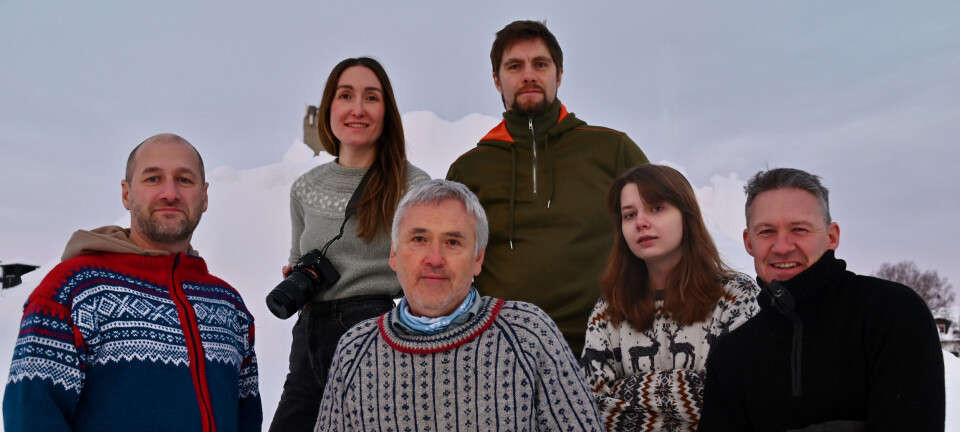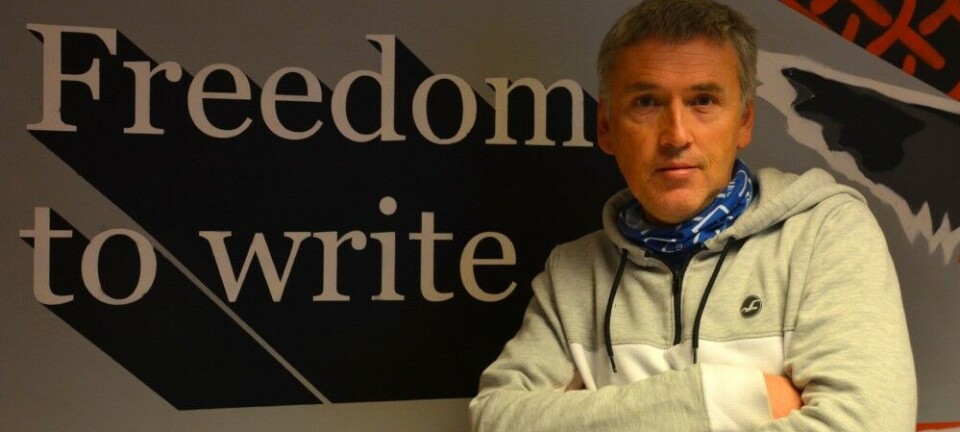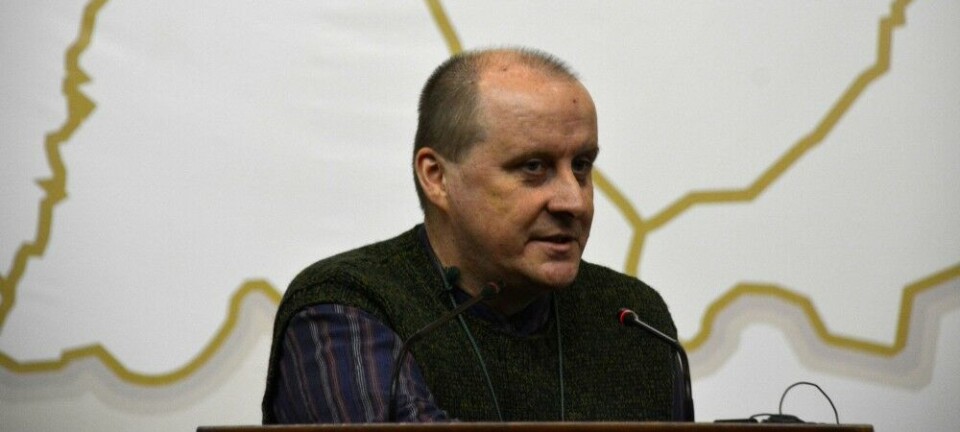Opinion editorial

Behind bars of truth: Russian Press Day in the age of censorship
Barents Observer journalist Olesia Krivtsova reflects on censorship, repression, and the fight for truth amid increasing pressure on press freedom in Russia and the world in her column.
Russia celebrated the Press Day on January 13. On this day, authorities happily congratulate media representatives on their professional holiday.
“Your articles reflect various viewpoints, raise current political, social, and economic issues, and also present a complete picture of what is happening in the special military operation zone, telling about the heroism of our warriors. This is especially important now, when a number of states are trying to rewrite world history, distort facts,” Prime Minister Mikhail Mishustin said in his congratulated note to the journalists.
I know of one such country for sure, Mr. Mishustin. A nation that distorts facts, rewrites world history, and participates in a real crime against freedom and journalism. This is our state - Russia.
To hide its crimes, this state replaced freedom of speech with 'information security,' and independent media with mouthpieces of state propaganda, which shamelessly spread hatred and hostility.
Today, on Russian Press Day - the Day of Censored, Distorted, Half-Alive Press, I want to tell you how, despite the surrounding darkness, Russian journalism, exiled and imprisoned for many years, continues to fight.
Behind bars
At least today in Russian prisons, there are 26 journalists who continued to work within the country despite the high risk of ending up in detention.
Among these 26 people is Antonina Favorskaya, a journalist from SotaVision, whose work has become an example of fearlessness. Antonina covered high-profile court cases, from the case of Ilya Yashin to the persecution of Alexei Navalny. She ended up behind bars after visiting the grave of Navalny, who was killed by the regime. The Russian authorities accused her of “participating in an extremist community” for posts allegedly made on FBK platforms. But even in detention, Antonina continues to speak the truth and give people hope:
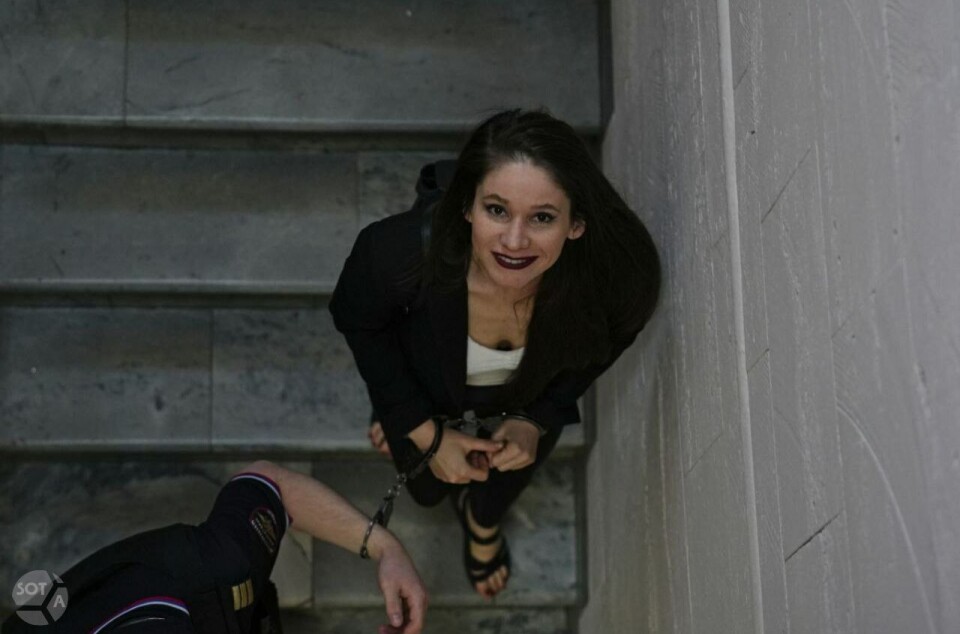
“The darkness that is happening now is not forever. We will definitely see the country that Alexei dreamed of. All this will end, and people will stop going to prison for not wanting war or for working as a journalist,” said the journalist at one of the court sessions.
Antonina faces up to 6 years in prison for her professional activities.
On the same unfounded charges, journalists Konstantin Gabov and Sergey Karelin are currently in a pre-trial detention center. They are held in the "Matrosskaya Tishina" detention center in Moscow under harsh conditions: overcrowded cells, sleeping places on the floor or cots, worn-out bedding with bedbugs. They are awaiting a verdict in a politically motivated case, fully aware that in this system their guilt was determined even before the trial began, and there will be no acquittal.
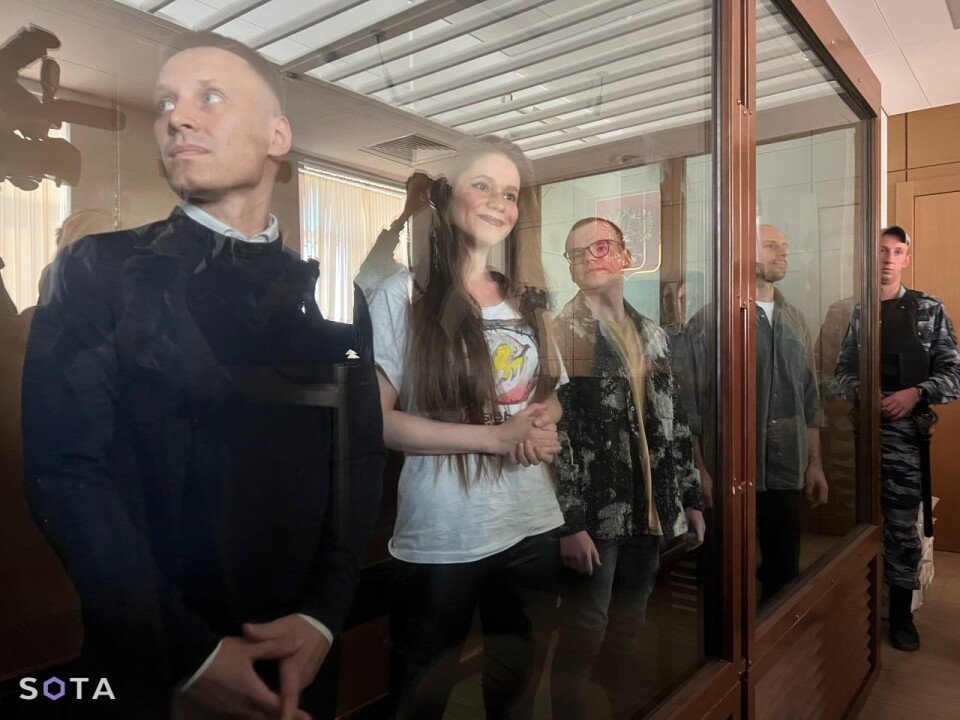
Among those who ended up behind bars is also journalist Nina Novak from Chita. The court sentenced her to four years in a penal colony for collaborating with the publication "Sibir.Realii," which the authorities declared an "undesirable organization." This is the first case of applying such an article, becoming another tool for suppressing independent journalism.
Nina, who worked in local media and engaged in cultural projects, was arrested in December 2023. What is her guilt? The Russian repressive system, represented by the courts and the FSB, considers Nina's contacts with her colleagues sufficient reason to spend 4 years in a colony.
Maria Ponomarenko, Ivan Safronov, Artem Kriger, Sergey Mikhailov, Irina Danilovich, and other journalists are prisoners of the Russian regime. Their fates are evidence of a crime against freedom of speech, for which the Russian state bears full responsibility.
Continue to work
Despite the development of a repressive system, hundreds of journalists remain in Russia to do what they can. Many of them are forced to hide their names and faces, using all possible means to protect themselves and their loved ones.
Recently, we went to a small meeting with Norwegian journalists. When asked if there are any journalists left in Russia who speak the truth, my colleague Georgii Chentemirov showed a photo of pediatrician Nadezhda Buyanova, sentenced to 5 years and 6 months in prison under the article on "fakes." Georgii asked his colleagues: “If you think there are no journalists left in Russia, then who took this photo?”
Until recently, there was a newspaper in Russia called “Sobesednik” - the last print publication that covered political persecution. Journalists from “Sobesednik” spoke with various people who faced repression. They even did an interview with me, despite the fact that I am on the list of “terrorists and extremists” of Rosfinmonitoring. The journalist who conducted this interview is still in Russia. However, in September of this year, the Ministry of Justice declared “Sobesednik-Media” a “foreign agent,” after which the publication of the newspaper ceased.
One of the publications that continues to operate in Russia is 'Novaya Gazeta'. This publication, which for decades has been a symbol of independent journalism in Russia, continues to fight, even though its editorial office was forced to cease publication in Russia. Some journalists from 'Novaya Gazeta' work from abroad, but even those who remain in the country continue to report on political repression and war, risking their freedom.
Notably, in Chechnya today, media workers were also congratulated on their professional holiday. In connection with this, several schools in Grozny held 'Conversations about Important Things', where children were told about the importance of media work.
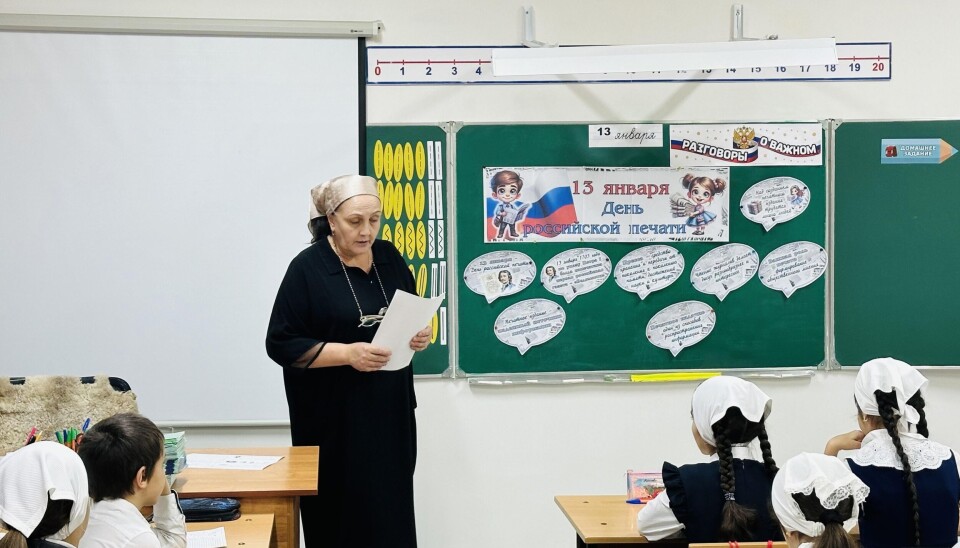
However, teachers do not mention the attack on Elena Milashina, a journalist from 'Novaya Gazeta', and lawyer Alexander Nemov, who were brutally beaten and tortured in Grozny in July 2023. They came to cover the trial of Zarema Musaeva, the mother of opposition Chechen activists. The attack was accompanied by death threats and humiliation.
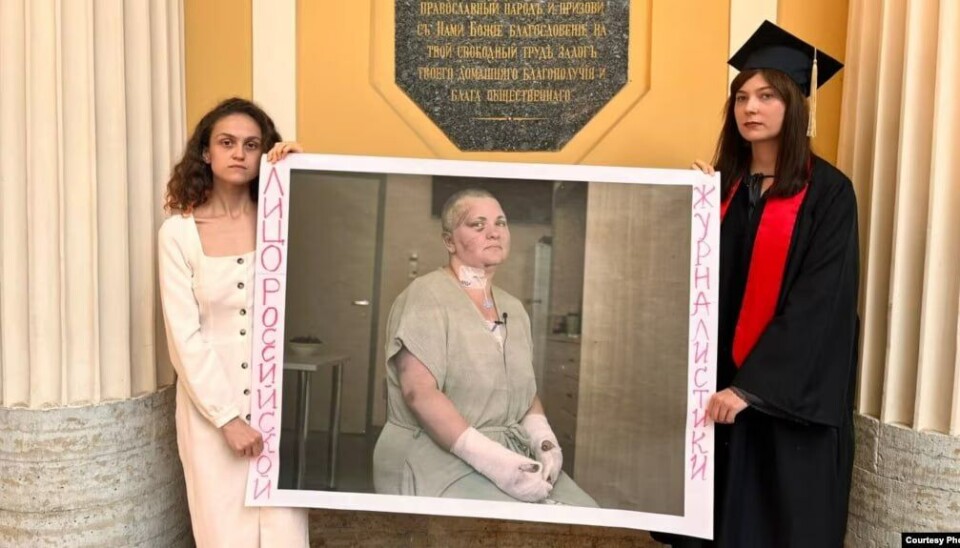
The case of the attack on Milashina and Nemov remains unsolved. Moreover, the investigation seems to be delayed and is being conducted with a blatant reluctance to bring it to a conclusion.
In exile
After the start of the full-scale invasion of Ukraine, many editorial offices were forced to leave Russia. The new military censorship made the work of journalists almost impossible, turning any attempt to honestly cover events into a threat to their freedom and lives. We faced unprecedented pressure: the laws on 'fakes' effectively prohibit any viewpoints different from the Ministry of Defense. Publishing materials that do not align with the official position can lead to criminal prosecution.
Censorship has become total: independent media websites are blocked, mentions of many organizations and people are banned, and access to information is severely restricted. Independent media are deemed 'undesirable,' putting editorial work at risk. Journalists face criminal cases, persecution, and can even be poisoned.
Direct pressure is complemented by harassment from pro-government media and threats from anonymous sources. By the way, recently the TV channel "GTRK-Murmansk" made a story about our editorial office The Barents Observer. Propagandists compared us to Nazis, and then threatened criminal prosecution.
In general, most of the Barents Observer editorial staff have been subjected to repression in one way or another. Journalist Georgii Chentemirov was recognized by the Ministry of Justice as a "foreign agent," editor Thomas Nilsen can no longer visit Russia as he has been declared "persona non grata," and I have two politically motivated criminal cases against me, which is why I am currently wanted.
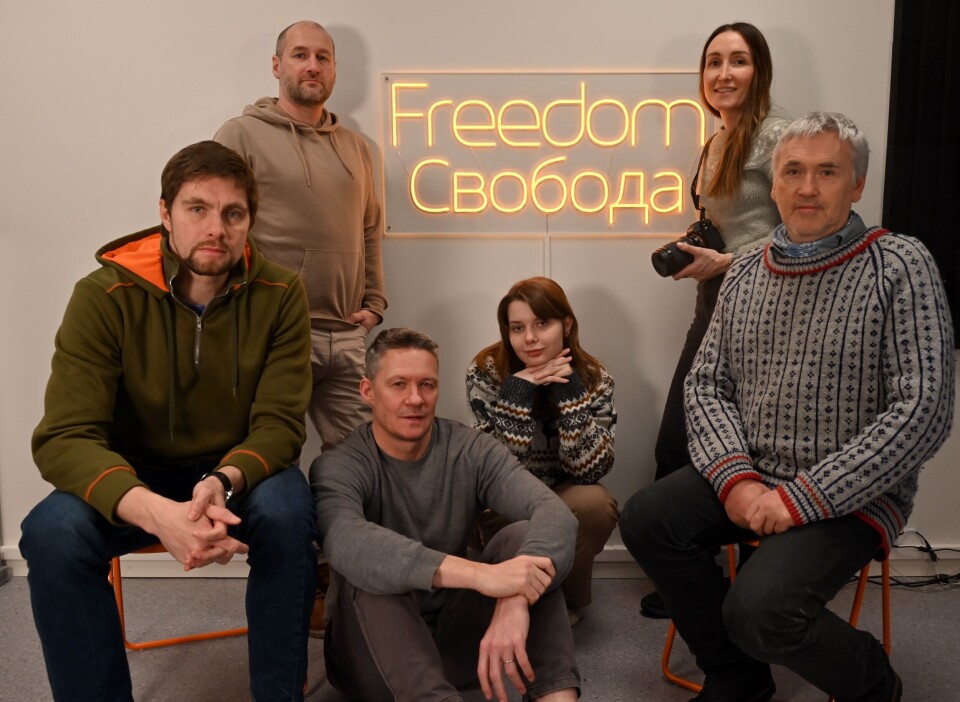
Not only in Russia
The profession of a journalist is dangerous, and we are not liked worldwide. We can convey the truth about power, society, and talk about minority issues that authorities often do not like to pay attention to. In democratic countries, however, the importance of freedom of speech and media is understood, while in territories ruled by dictators, journalists are in great danger.
According to the report by "Reporters Without Borders," by the end of 2023, there were 779 journalists imprisoned worldwide, a record high in the history of observations. Of these, 547 remained in custody at the beginning of 2024. Repressive dictatorial regimes still exist in many countries where press freedom is systematically suppressed.
China ranks first, with more than 100 journalists behind bars. In Myanmar, after the 2021 coup, the repression became particularly brutal. In Iran, journalists are the main victims of repression during protests. Belarus and Vietnam also lead this anti-ranking as countries where the independent press has been virtually destroyed.
“Reporters Without Borders” also note that since the escalation of the war between Israel and Hamas in October 2023, the number of Palestinian journalists in custody has increased to 34. Half of them are held under administrative detention without trial or charges. In the West Bank, repression is intensifying, and in Gaza, the situation is even more tragic: during the conflict, it is alleged that the Israeli army killed 76 journalists, 16 of whom were performing their professional duties.


